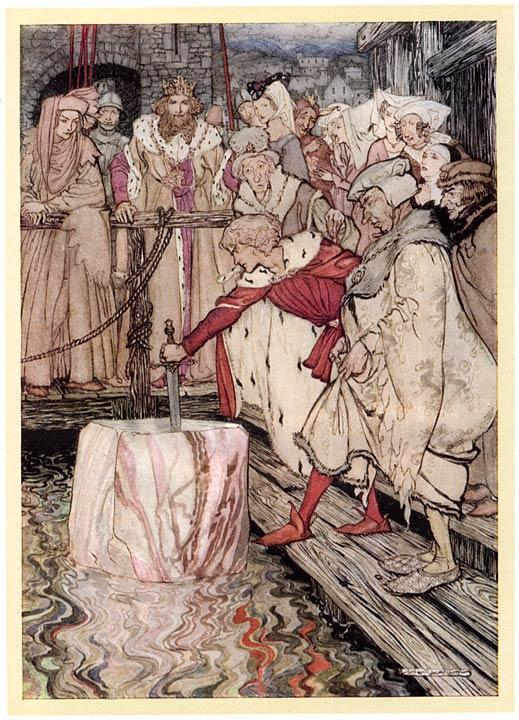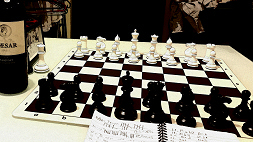
Big reflections on my league struggles
Today was the day for round 2 of 9 in the Maya Championship. It's a league for Shanghai players below master level to get some exciting, longish games OTB using a 50 10 time control.
Let's get right to it and...oh no wait...what's happening...oh no, there are some puzzles in the way! Help me guys!
Whew! That was a doozy. Black was in big trouble there. OH NO HERE COMES ANOTHER ONE!!!
Whew! I'm sure glad that is over.  He must have been getting blunders ready for Noah's Ark. Anyways, enough with the puzzles.
He must have been getting blunders ready for Noah's Ark. Anyways, enough with the puzzles.
 He must have been getting blunders ready for Noah's Ark. Anyways, enough with the puzzles.
He must have been getting blunders ready for Noah's Ark. Anyways, enough with the puzzles.Reflections on Round 1: Performance Science and Sport Psychology
If you looked at my game from Round 1, you would see a very one sided game where a bad player gets crushed. But actually, the game got me really excited about chess.
In my round 1 game I fell into an opening that I knew to be an opportunity. This nervous feeling of "having something to lose" has, even in other games before I played chess, frequently been my enemy, making me crumble when I start to believe I am doing well against people better than me.
Precisely because I am facing higher opponents, I feel like I have more to lose and thus more pressure. But this time, instead of losing the ability to think at all, I drove that energy into making me fight to look for those moves of myself and my opponents' and to look further, to be sure I knew what I was doing each move. I turned the fear of losing something I didn't deserve, something beyond my control, into the fear of leaving some stone unturned, or of accepting a move without having done my due diligence.
When I say "fight," I really mean fight. My laziness to stick on a move idea without looking at others was still there. My panic and fear, because I thought I was holding a chance to win in my hands, making my thoughts go in circles, was still there. But I gathered myself and used my time and effort to fight against it, to recognize it and react to it. To not make chess moves until I knew in reality that quality play had made the moves and not these other demons.
I didn't always win the fight each turn, but I felt good at having tasted blood and fighting the battle to keep the kill for myself.
In this game, perhaps because of that alluring start, though I didn't realize it, from start to finish I never lost sight of what I was battling and what I was fighting for. I was fighting for a win that was out of my league. The battle was with myself.
Excited about Round 2: Pat
I was surprised how excited I was after I found out my game would be against Pat. Pat is, like most of the club, much stronger than me--out of my reach, for sure. But, last week I felt like I accomplished more than before (although, looking at the game, it may be hard to tell).
I felt like I had grown during Round 1, and saw signs that I had grown leading up to it. I also felt that through analyzing this big game a lot was changing.
I also remembered playing Pat in the past. He always felt like the kind of guy I could beat if I didn't make some ridiculous piece-dropping moves. He will beat me if it comes down to an endgame, because he calculates well and sees weaknesses and activity instantly.
So I thought I had a shot, and it was exciting to work towards. I knew it wasn't a great shot, but I was adding all of this up. Maybe I'm stronger than those games back in the day. Maybe he's about the same as then (actually not, but optimistically I didn't see this at the time). And maybe I could, if I don't drop any pieces, steal a game from Pat, before it can simplify down to the realm where he will have a huge edge.
Optimistic, maybe impossible. But just like I was hooked on fighting for that impossible win in Round 1, I started to chase that in my preparation for Pat's game too.
I knew he always e4's. I knew he doesn't really know openings, he just follows principles and calculates tactics. So I could possibly get the jump on him in the opening, play the middlegame better than anyone thinks I can, and avoid simplifying. I was confident that if I could do that long enough, some strategic blunder would finally burst out from his side.
Adding up a bunch of half-truths and maybes I ended up convinced that this lotto ticket might just hit it big.
How NOT to Prep
After the game (see "puzzles" above), I still believed in the shot I had in this game. But I was disappointed I had wasted it. Even dropping that first pawn was a huge disappointment.
I had spent almost all of my chess time those two days indulging in looking at how I thought the game would go. I analyzed his games. I had a sense of what he would play and not play. I reviewed my game against e4 and was seeing the typical positions, learning some new moves and new connections and tactics typical of them.
But then, basically the first chance to blunder that I had, I did so, right in a position I had been familiar with for many months. I didn't feel like I moved impulsively, but I was confidently making moves I 100% knew as quickly as possible. I knew that if things got complicated I would need a time advantage. If we got later into the game, where he would thrive against me, I hoped to have a shot at him being in time pressure.
Without realizing it, I had assumed that all the urgency and spirit to fight for something I experienced in Round 1 would magically be there for me in Round 2. It was like all that effort and fight I had stumbled into in Round 1 I had been assuming was now in my pocket for free.
I had spent all of my time indulgently studying games and positions, and done nothing to check (or train) my play itself!
If I had played one 15 10 game online that morning, I would have caught myself. Being lazy, optimistic, hopeful rather than sound, etc. Most of all I would have seen that the effort and fight are never "for free," they have to come from your own exertion. Chess keeps you honest like that.
If I had just pushed through some tactics a little longer than comfortable, I could have found the taste for battling the mind until it finally does the work all the way to the end. Every failed tactic would be a glaring arrow towards what I didn't consider or didn't see and I would immediately know where I was.
Nothing in the days leading up to it had let me see that the urgency to guard against laziness, automatic moves, bad assumptions was non-existent unless I myself feel it's at stake and work towards keeping it. I took the "Performance Science / Sport Science" factor for granted. My discipline and thought process had slid out of alignment and I didn't know it until I was in a game that was important to me and I had already made several bad moves. I was so excited about this game, and I threw it all away.
I didn't know why I felt different in Round 1. I didn't know that by the time I played my game in Round 2 I had completely stopped looking for my opponent's replies to my canidate moves. I assumed that since I had been doing this more lately, I didn't need to think about that any more. I needed up-to-date experience to get my assumptions destroyed and replaced with facts. I needed to have those facts in hand and practice playing so that these facts are not just ideas but part of how I play.
It's important to think about what you do before a game so that you know where you're at.
